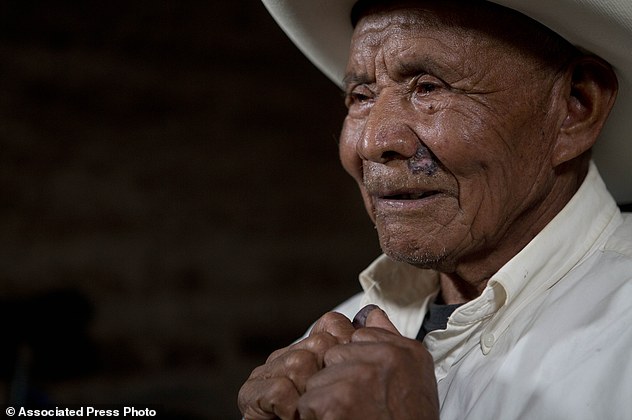
NEW YORK, April 8, 2017 (BSS/AFP) – When Oscar Ramirez was just three years old, his piercing green eyes helped save him from death.
A soldier who was in the military unit that wiped out his family and slaughtered his entire Guatemalan village spared the child and raised him as his own.
When Oscar learned the truth about his past, in 2011, he was already more than 30 years old.
Now, a documentary executive-produced by Steven Spielberg and opening in the United States next week, tells his story more than three decades after the massacre.
“This is the most fascinating story I ever heard,” director Ryan Suffern, a 39-year-old American who worked for two-and-a-half years on “Finding Oscar,” a poignant account of a search for truth and redemption in a country once torn apart by civil war.
“Imagine,” he told AFP, “if you had a phone call one day and you learn the whole life as you knew it is essentially a lie. That’s Oscar’s reality. Oscar has dealt with that in a remarkable way.”
“Here’s a decades-long pursuit of justice that’s embodied in trying to find this little boy.”
Oscar survived the murders in December 1982 of his mother, his five sisters, two brothers and 200 other inhabitants of Dos Erres, a hamlet in the Guatemalan jungle.
The movie interviews various subjects who for decades investigated what happened during two unspeakable days, when it seemed an entire town in northern Guatemala had been wiped from the map, including a prosecutor who tracked Oscar down and revealed to him the story of his past.
Oscar’s family were among the more than 200,000 people dead or “disappeared” in Guatemala’s brutal civil conflict that simmered on from 1960 to 1996.
– A living link –
The massacre in Dos Erres was carried out at the hands of the “Kaibiles,” a special army unit trained by the US military to combat communism — part of a scorched earth campaign waged by then-president Efrain Rios Montt to wipe out a perceived threat from rebel guerrillas.
The release of the film produced by Spielberg and Frank Marshall, comes just days after the decision of a judge in Guatemala to order a special trial for genocide against Rios Montt, 90, a former general, for his role in the massacre at the center of this film.
Rios Montt in 2013 was sentenced to 80 years in prison for genocide, but Guatemala’s highest court overturned the ruling because of a “procedural error.”
A UN-sponsored Truth Commission documented 669 massacres during the civil war in Guatemala, the overwhelming majority at the hands of the state during the dictatorship of Rios Montt or his successor, Oscar Mejia Victores, who governed from 1983 to 1986.
Only a handful of “Kaibiles” have been convicted in connection to the massacre, but each received a sentence of more than 6,000 years in prison.
Three others accused in the slaughter are jailed in the US for immigration violations. Several others are believed to reside in the United States.
– Years of searching –
The narrative of exactly what happened in Oscar’s village of Dos Erres was painstakingly pieced together over time through testimonies from relatives, survivors, forensic experts, a courageous prosecutor, Sara Romero, and even some ex-Kaibiles who received immunity in exchange for their testimony.
After years of searching, in 2011 the prosecutor Romero finally tracked down Oscar, who was living as an undocumented immigrant in the Boston suburbs, and revealed his story to him.
The young man travelled to Guatemala the following year and met his biological father, a peasant who survived because he was away from the village at the time of the massacre.
Oscar has since legalized his status, obtaining a US refugee visa and rebuilding his life.
“Oscar is now living his version of an American immigrant dream, with his wife Nidia and his four children,” Suffern said.
Following its American debut, “Finding Oscar” will be seen in Guatemala later this year, according to Suffern.
“It’s so important to be able to publicly show this film in Guatemala,” the director said calling it an “acknowledgement” that massacres took place.


